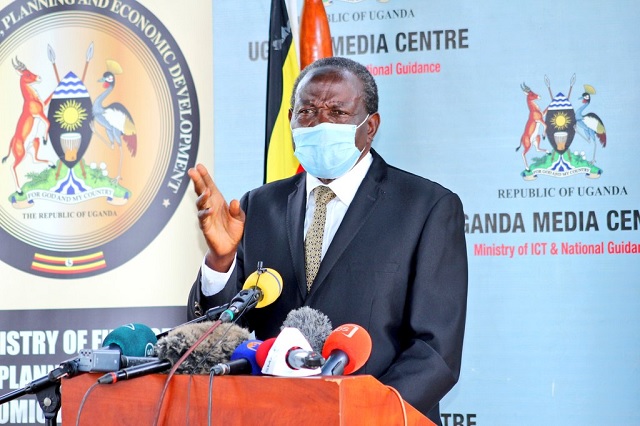
Kampala, Uganda | THE INDEPENDENT | Multiple international crises are pushing up commodity prices in Uganda, causing discomfort among the public, the ministry of finance has said.
Finance minister Matia Kasaija, in a recent statement, said prices of essential goods and services like laundry soap, wheat flour, cooking oil, education and transport are being driven up by crises ranging from the Russia-Ukraine crisis to the ongoing COVID-19 pandemic.
Kasaija said the Russia-Ukraine conflict has worsened an already precarious situation, disrupting the supply of oil, cereals such as wheat flour, corn, and sunflower, as well as essential metals like aluminium and nickel.
“These two countries are major producers and exporters of these commodities,” Kasaija noted.
Russia and Ukraine account for half of the global supply of palm oil substitutes and the conflict between the two countries has exacerbated global shortages, resulting in higher prices of raw materials, according to the minister.
Kasaija said the increased demand for palm oil and its reduced production due to COVID-19 restrictions have pushed up the price of laundry soap and cooking oil in Uganda.
Over 70 percent of the crude palm oil used to make these two products in Uganda is imported, according to ministry of finance figures.
Besides the Russia-Ukraine crisis, COVID-19 restrictions across the world have disrupted supply chains, leading to higher transport costs and shortages of raw materials, Kasaija said.
“In the recent past, global economy has faced high shipping costs and shortages of shipping containers and higher fuel costs, leading to supply shortages globally,” he said.
The reopening of economies globally following relative containment of COVID-19 also pushed up the prices of goods due to increased aggregate demand, but production affected by COVID-19 restrictions has yet to fully recover, according to Kasaija.
The minister said the increase in pump prices domestically as a result of a strike by truck drivers at the Uganda-Kenya border has pushed up the prices of essential goods.
REMEDIES
The government is now urging the public to remain calm as it comes up with possible solutions to the escalating prices.
Kasaija said government agencies are investigating unscrupulous individuals who are taking advantage of the situation and hoarding essential commodities to further drive up the prices.
“We are working with relevant agencies to investigate this matter and we will take action against any operators who are found to be engaged in this practice,” the minister said.
The government is considering regulating fuel prices so that they are true reflection of the economic situation, Kasaija said.
This is intended to cushion the public against the high prices, he said, noting that Uganda is picking lessons from her neighbors on how to better handle rising fuel prices.
Kasaija said the central bank will continue to monitor the situation and implement a favorable monetary policy that will ensure the inflation stays within the target and maintain macroeconomic stability.
Uganda, according to the ministry of finance, aims to keep inflation below 5 percent. Last month’s year-on-year inflation was at 3.2 percent.
Kasaija said the high global prices also present the country an opportunity. He said in the oil sector, Uganda has finished all the preconditions of starting commercial production.
“We will expedite all implementation of project activities to ensure timely start of oil production to bring in more dollars to boost our reserves so that Bank of Uganda has enough arsenal to fight inflation,” the minister said.
*****
Xinhua
 The Independent Uganda: You get the Truth we Pay the Price
The Independent Uganda: You get the Truth we Pay the Price





